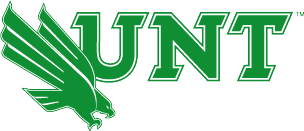USC Career Center
Example Diversity and Inclusion Events hosted by Career Services
This past spring, the University of North Texas Career Center organized its first annual Diversity and Inclusion Career Fair open to student from all majors. The theme of the event was "Equality in the Workplace". The purpose of the event was to connect students to employers and organizations that value diversity and inclusivity in the workplace in order for students to explore internship, part-time, or full-time possibilities.
In preparation for the event, the career center hosted career planning workshops and encouraged students to contact their career advisors. While there was no information about the utilization of student organizations to help oversee and coordinate the career fair, the event was marketed to both students and employers. For potential employer and organization attendees, the registration fee was $100 to $150, however, the event was free to students.
In contrast to USC's recruiting night, it was evident from an outside perspective that this event was student-centered and student-focused. Students were plainly given access to the list of organizations that would attend the event so that they could conduct company research before attending. Through preliminary organizational research, students have the time to determine how their values, interests, personality, and skills align with potential employers who would be attending the fair. Moreover, diversity and inclusion considerations were made of students with different abilities as there was contact information for those who wanted to request specific accommodations.
Diversity & Inclusion
Career Fair
In January, the University of Southern California Career Center hosts a Diversity & Inclusion: Recruiting Night to connect employers with diverse USC undergraduate students. The event is boasted as a Career Fest signature event. Career Fest is a week of events for USC students centered on topics related to success and values in professional development.
The career center holds the recruiting night in partnership with campus departments and student organizations including:
-
Asian Pacific American Students Services (APASS)
-
Center for Black Cultural and Student Affairs (CBCSA)
-
Disability Services and Programs (DSP)
-
El Centro Chicano
-
LGBT Resource Center
-
Veterans Resource Center
While student organizations play a role in helping to host and organize the recruiting night, the career center markets the event to employers rather than students. The event's description states that its purpose is to aid employers interested in diversifying their organizations and expanding their diverse environments. In particular, the event is intended to support organization's diversity and inclusion recruitment efforts by connecting them to diverse USC undergraduate students from all majors and backgrounds. From these employers and organizations, the event solicits registration fees ranging from $100 to $1,500 to potential attendees.
Though well-intended, the event seemingly runs counter-intuitive to diversity and inclusion efforts since its focus is on the employer and what they can gain rather than the student and the value they bring. From an outside perspective, the recruiting night promotes an "auctionesque" undertone. By examing this event through a critical race lens, and particularly, race and property rights on college campuses, one could determine that USC is promoting its diverse student population as its "property" to potential buyers/investors. In other words, employers pay to come to an event in which USC displays its best and brightest diverse students for employers to examine and scrutinize. After reviewing the pool of students, organizations can then decide to pursue a candidate or not.
To truly foster diversity and inclusion within this event, the USC career center should frame the recruiting night so that it is student-centered and student-focused. By changing this approach, students would be the subjects that are examining and scrutinizing organizations based on their values, interests, personality, and skills rather than the objects.
Diversity & Inclusion: Recruiting Night

UNT Career Center


